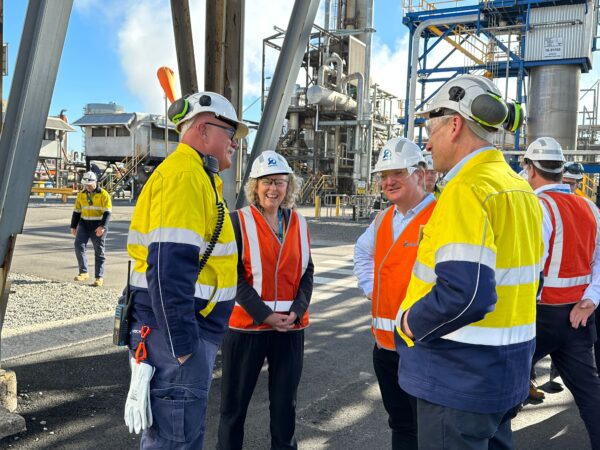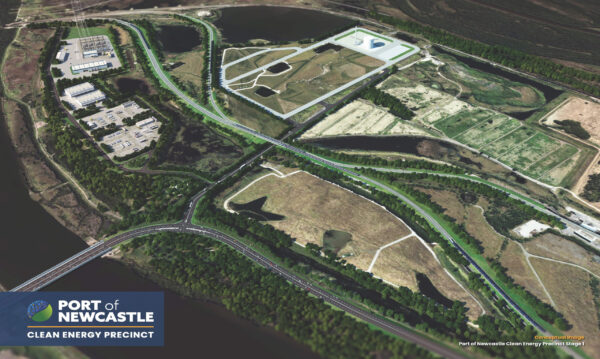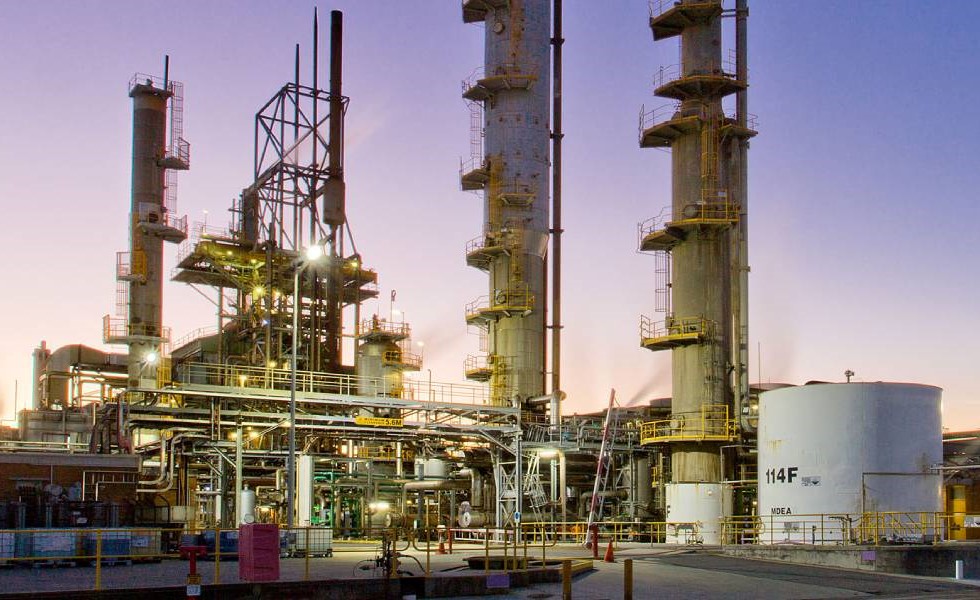Origin Energy in collaboration with Orica, the world’s largest explosives manufacturer, has secured a $70 million commitment from the Australian government to advance the development of a commercial green hydrogen manufacturing hub in the New South Wales (NSW) city of Newcastle.
Federal Energy Minister Chris Bowen said the government funding will help build the infrastructure needed for the proposed Hunter Hydrogen Hub which would produce green hydrogen from recycled water sources and renewable electricity generated by Origin’s portfolio, using a grid-connected 55 MW electrolyser.
It is expected the plant, to be established at the Port of Newcastle, will produce up to 5,500 tonnes of green hydrogen each year with most of the output to be used by the Orica ammonia and ammonium nitrate facility on Newcastle’s Kooragang Island. Hydrogen will also be made available for refuelling hydrogen buses and trucks at the hub.
Origin said it has yet to reach a final investment decision on the project, which is to be designed in such a way that hydrogen production could be scaled up to potentially export the fuel in future, with engineering design work still under way, and environmental approvals still to be secured.
Construction of the facility is expected to begin in 2025 with operations to commence in 2026.

Image: DCCEEW
Bowen has described green hydrogen as renewable hydrogen as “an essential part of Australia’s renewable energy transformation” and said the Hunter Hydrogen Hub would help give the hydrogen industry its springboard to scale.
“This project is the next step towards using locally produced renewable hydrogen in Australia to reduce our industrial emissions and develop a renewable export future,” he said.
The Hunter Hydrogen Hub funding is part of the Australian government’s $500 million Regional Hydrogen Hubs Program which is investing more than $500 million in up to seven hydrogen hubs across the country.
The funding announcement comes just 24 hours after Origin and Orica inked formal agreements with the Port of Newcastle to support the development of a clean energy precinct.

Image: Port of Newcastle
The port said it has formalised memoranda of understanding (MoU) agreements with 15 major domestic and international companies, including Japanese industrial giant Mitsubishi Heavy Industries, Korean power utility KEPCO, and Fortescue Future Industries.
Project Lead and the Port of Newcastle’s Chief Commercial Officer, Simon Byrnes, said the Clean Energy Precinct MoUs spanned collaboration on the development of inland and offshore wind projects, electricity transmission and water supply, clean energy production, clean energy storage, distribution and export facilities, export and bunkering, skills and training pathways, advanced manufacturing and innovation hubs.
Port of Newcastle Chief Executive Officer Craig Carmody acknowledged that “there is a long way to go to make this project a reality” but said the “once in a generation” project is at the centre of the port’s future diversification strategy.
“Our dedicated 220-hectare clean energy precinct will offer the perfect platform for large-scale clean energy production, which will be supported by common user, open access, shared infrastructure across clean energy storage, transport and export facilities servicing production from the precinct itself and from right across the Hunter region,” he said.
The port’s announcement came on the same day that the federal government officially declared the Hunter Coast an offshore wind zone, expected to generate up to 5 GW of wind energy.
This content is protected by copyright and may not be reused. If you want to cooperate with us and would like to reuse some of our content, please contact: editors@pv-magazine.com.









By submitting this form you agree to pv magazine using your data for the purposes of publishing your comment.
Your personal data will only be disclosed or otherwise transmitted to third parties for the purposes of spam filtering or if this is necessary for technical maintenance of the website. Any other transfer to third parties will not take place unless this is justified on the basis of applicable data protection regulations or if pv magazine is legally obliged to do so.
You may revoke this consent at any time with effect for the future, in which case your personal data will be deleted immediately. Otherwise, your data will be deleted if pv magazine has processed your request or the purpose of data storage is fulfilled.
Further information on data privacy can be found in our Data Protection Policy.